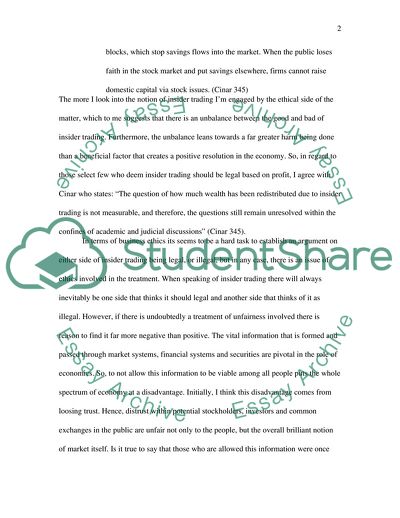Cite this document
(Insider Trading Essay Example | Topics and Well Written Essays - 1750 words, n.d.)
Insider Trading Essay Example | Topics and Well Written Essays - 1750 words. https://studentshare.org/finance-accounting/1745160-philosophy-business-ethic-defending-moral-decisions
Insider Trading Essay Example | Topics and Well Written Essays - 1750 words. https://studentshare.org/finance-accounting/1745160-philosophy-business-ethic-defending-moral-decisions
(Insider Trading Essay Example | Topics and Well Written Essays - 1750 Words)
Insider Trading Essay Example | Topics and Well Written Essays - 1750 Words. https://studentshare.org/finance-accounting/1745160-philosophy-business-ethic-defending-moral-decisions.
Insider Trading Essay Example | Topics and Well Written Essays - 1750 Words. https://studentshare.org/finance-accounting/1745160-philosophy-business-ethic-defending-moral-decisions.
“Insider Trading Essay Example | Topics and Well Written Essays - 1750 Words”. https://studentshare.org/finance-accounting/1745160-philosophy-business-ethic-defending-moral-decisions.


